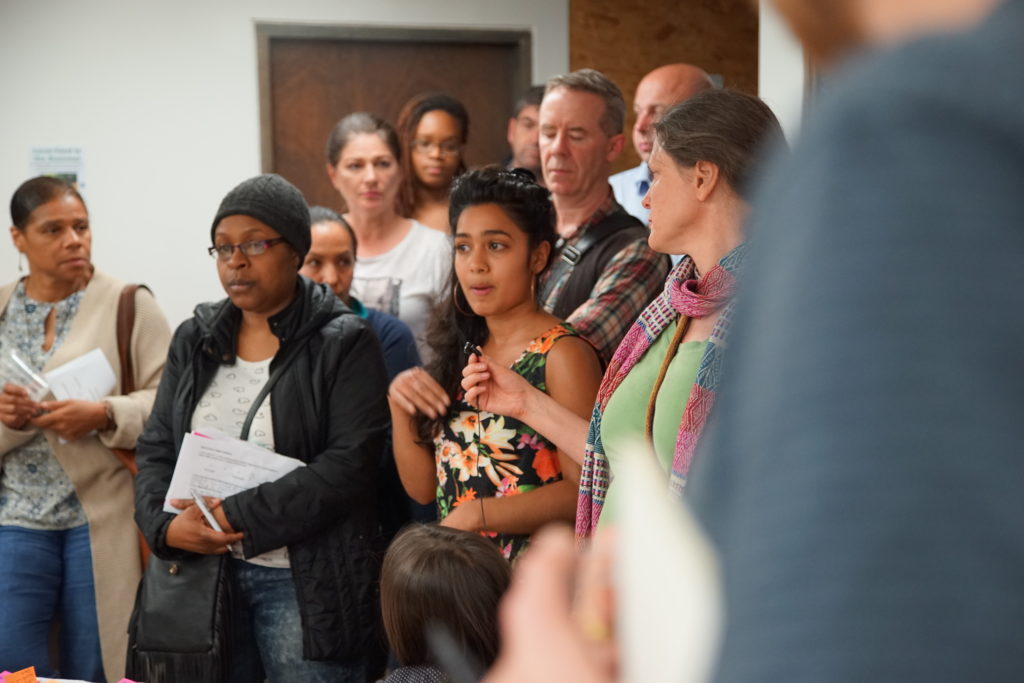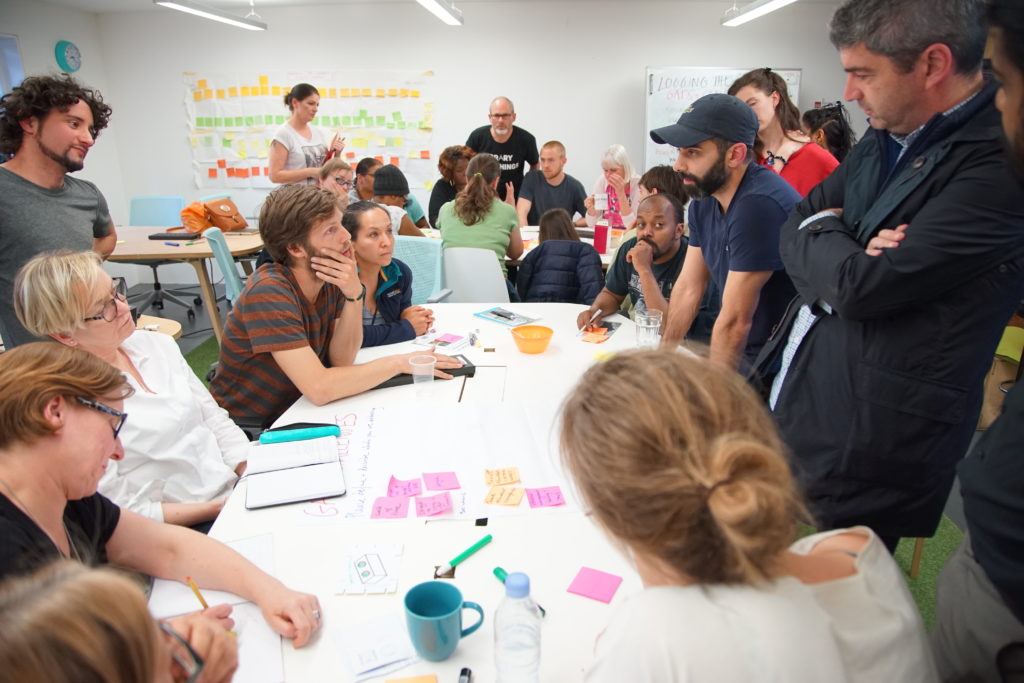Duncan Law is a founder member of Transition Town Brixton, part of a national Transition Network working to reduce our reliance on fossil fuels. He works two and half days a week for Biofuelwatch and the rest of the time he focuses on Transition. This work includes delivering the REconomy Project pilots and other projects, like Local Food is the Business, a group of food producers in Brixton with big plans to start a local food system.
What’s the point of Local Food is the Business?
The point is to connect the outcroppings of local food together to see how they can help each other, to connect them to interested people in their community who may also be able to help and become community investors – not just for money – and to identify challenges and gaps that if filled would help us move towards the beginning of local food system, rather than just a bunch of projects.

When did you decide to do it?
Every Monday night at the Impact Hub in Brixton we have the Open Project Night, where community organising and entrepreneurship happens. Initially this was set up with seed funding from Reconomy Project and then we got some money from Power to Change to do peer-to-peer networking.
We did that at a local entrepreneurs’ forum in 2015, then last July we did an event called Local Food is Growing to connect and support these groups. This is a logical next step.There are other people working in the field but ideally we want to get them together in the same room and finding it a juicy experience and that there’s stuff to be had quite quickly.
How do you fit it in?
It’s partly paid, from the Power to Change money given to the Impact Hub Brixton to do the open project nights for the next 18 months.
What has been your proudest moment?
An initial proud moment was the businesses going, “This is a great idea, I definitely want to be there.”
What’s been the hardest thing?
Focus, I think. This is part time, so I keep worrying that I haven’t done something, or haven’t managed to act on it.
Then there are uncertainties about facilitating something and making sure you create the situation where the most useful information is brought into play. You want people to have a stimulating and welcoming discussion that’s focussed towards achievability.
At the end of it we want to have, say, eight actions that are going to be taken, and six good ideas that we can remind people about. We don’t want it to be a talking shop.
We’ve found that these little events are incredibly productive because people discover they have things to offer and have knowledge to offer that they didn’t realise, that will be useful.
What drives you?
It’s my conviction and passion that this is urgent. My view is that the global food system is fucked apart from some peasant systems in areas where climate change isn’t so catastrophic.
The next few decades are going to be of increasing challenge on the food front. We need to be getting the new food system on the skids to replace the old one as it collapses. It has to be local first, in order to decide what we need to bring in from outside.
There’s lots of deprivation in Brixton. There are food banks dishing out tens of thousands of food parcels a year. There’s a lot of wasted space. There’s a lot of potential for people to do it if there is an opportunity so it’s a question of how do you make that available to spread and increase.
We’ve been working on this for a long time and a number of things have come out over the years. But they’re still tiny and the local government is still allowing more Tesco Metros, they’re allowing the carpet bombing of the local economy.
We can’t win if we fight them, they’ll just say they haven’t got any money.
If we come up with amazing working examples of the future they will gather round. That’s just how government works.
What’s the next step?
The next step is the event, then to follow up and hold the agenda. Through the agency of the Impact Hub and Open Project Night we can offer to facilitate whatever steps are deemed necessary.
How did you vote in the EU and why?
I voted remain. While not particularly a supporter of one-size-fits-all economic measures, I think we need to become brothers and sisters and the EU is a way of doing that. Also I think leaving, as it is proving, will take the eye off the important balls for the next 10-15 years. So we won’t achieve on climate change other important stuff because it won’t be a front line discussion.

How will the outcome affect what you do?
I’m not sure it hugely will. The localisation agenda could be seen to be helped by Brexit but it’s not enough to justify it.
What we’re talking about is continuing to trade and continuing to trade globally. I hgave always objected to the fact that the euro and economies of scale make it cheaper to buy a lettuce from Morocco at certain times of year than it is to buy it at home.
What would you say to someone looking to do something similar?
Observe before you intervene. Get to know as many of the people in the ecosystem as you can before you intervene and make sure there isn’t someone more appropriate to do it or who can do it with your support. But if they are on side and that role is not being done, do it with humility. There are often a lot of good food projects in a neighbourhood that don’t have time to connect with each other.
Observe before you intervene.
What does community mean to you?
It means feeling that I belong. I means many interconnections and knowing many people. It’s about feeling you can make a difference. It’s a place where you have power if you join with other people. I suppose, also, it’s a place of more hope than just an overview of the world might give you, because you have mutual support.
